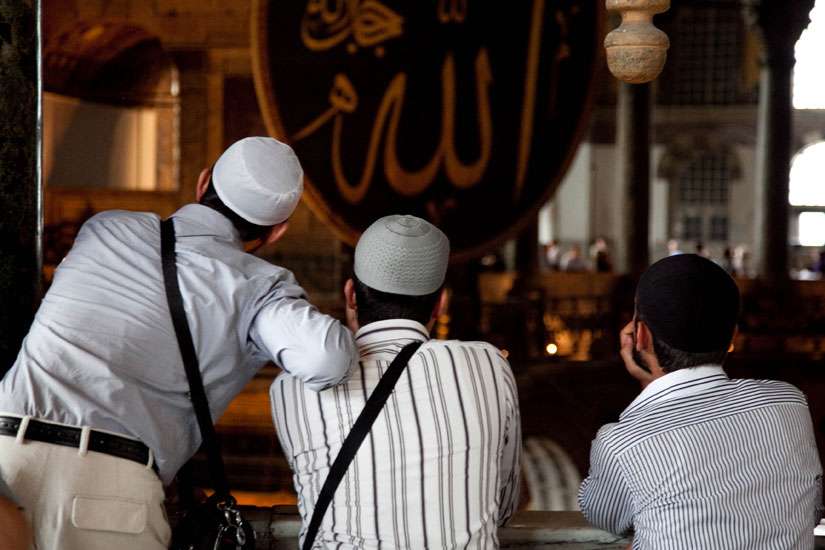In Canada’s Catholics, Bibby and Reid find that Canadian Catholics who attend church once a month or more are least likely to hold negative views of Muslims, with 29 per cent of Catholics outside Quebec who attend church regularly holding a negative view of Muslims, compared with 49 per cent of Canadians as a whole. However, 55 per cent of Catholics who attend church once a month or more in Quebec hold negative views of Muslims, and for those who attend less frequently the number jumps to 63 per cent.
For those proclaiming no religion, 38 per cent view Muslims negatively, while 41 per cent of other Canadians do likewise. In comparison, other Canadians hold negative views of Roman Catholics at a rate of 19 per cent.
These figures are “against the great Canadian ideal, and the Catholic ideal that we’re being accepting of people different than us,” said Bibby, a Canadian sociologist who holds the Board of Governors Research Chair in the University of Lethbridge’s sociology department. “We have a long way to go.”
Bibby said the high levels of negative feelings towards Muslims might be understandable given the context, and anxieties, around terrorism.
One area of improvement, Bibby said in an interview, is attitudes towards Jews, which in data going back to the 1970s, especially in Quebec, shows negative attitudes being very high. Now among Catholics in Quebec, Jews are viewed unfavourably by only 14 per cent of those who attend monthly or more and by 20 per cent of Catholics who attend less. For Catholics outside of Quebec, the number drops to six per cent and four per cent respectively.
The other two groups that fare badly in the survey among Catholics are Mormons and Evangelicals. In Quebec, 40 per cent of Catholics who attend regularly view Mormons unfavourably; 36 per cent of less frequent attenders do. In the rest of Canada, 17 per cent of regular attenders view Mormons unfavourably; 28 per cent of less frequent attenders do.
Evangelicals fare worst among those with no religion in Canada, being viewed by 44 per cent unfavourably. Thirty-two per cent of non-Catholic Canadians view Evangelicals negatively. Among Catholics outside Quebec, 19 per cent of the regular attendees view Evangelicals negatively to 20 per cent of the less frequent attenders. In Quebec, the numbers are 16 per cent and 15 per cent respectively.
Catholics outside Quebec are the most likely to hold negative views of atheists at 39 per cent for frequent attenders and 20 per cent for less frequent.
“The people most actively involved are feeling the most antagonistic towards atheists,” Bibby said. “People in the no religion category typically return the favour with 24-per-cent negative towards Catholics.”
Overall, Canada’s Catholics paint a favorable picture for the future of the Catholic Church in Canada, largely due to the large number of Catholic immigrants coming into the country.
A Pew Research Centre 2015 study projects Christians will decline from 69 per cent of the Canadian population in 2010 to 60 per cent by 2050. Bibby said Catholics will continue to be by far the largest group among the Christians. The Muslim population is projected to grow from two per cent of the population in 2010 to six per cent in 2050.
Those with no religion are projected to go from 24 per cent of the population to 26 per cent in 2050.
The study shows the Catholic population in Canada is about 12.8 million people or 39 per cent of the population.
The book predicts a bright future for Catholics because they will remain the largest religious group in Canada, most Canadians remain Catholic inter-generationally and the immigration pipeline will bring many more new Catholics to Canada who tend to be a younger, more conservative demographic.
“In Canada’s increasing religious mosaic, Christians remain the biggest tile, with Catholics the largest group in that category,” Bibby said. “In the Canadian religious reality, Catholics will continue to constitute the majority. They are league leaders, way ahead of everybody and that’s not going to change in the foreseeable future.”


